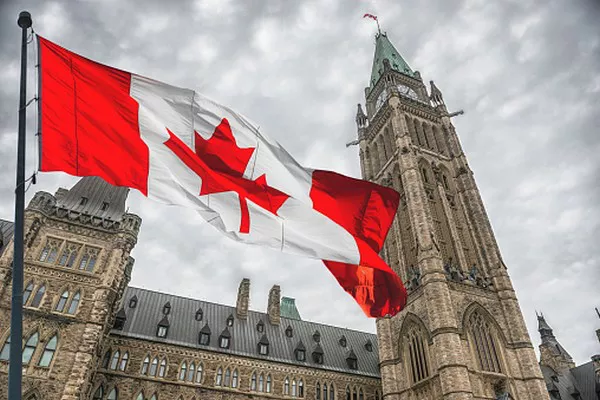Canada Day is a prominent national holiday celebrated across the expansive and diverse landscape of Canada. This comprehensive article explores the significance of Canada Day, its historical roots, cultural significance, how it is celebrated nationwide, and its impact on Canadian identity and national pride.
Understanding Canada Day
Historical Background
Canada Day, originally known as Dominion Day, commemorates the anniversary of the Confederation of Canada on July 1, 1867. On this date, the British North America Act (now known as the Constitution Act, 1867) united the three separate colonies of Canada, Nova Scotia, and New Brunswick into a single Dominion within the British Empire, laying the foundation for the modern nation of Canada.
Renaming to Canada Day
In 1982, the name of the holiday was officially changed to Canada Day through an Act of Parliament. This change reflected a desire to emphasize Canadian nationalism and cultural identity, marking a shift away from colonial associations and embracing Canada’s unique heritage and diverse population.
Canada Day Celebrations
National Symbolism
Canada Day is celebrated with great enthusiasm and patriotism throughout the country. It serves as a symbol of unity, diversity, and the values that define Canada as a nation. The holiday embodies a sense of pride in Canadian history, achievements, and the shared values of democracy, multiculturalism, and respect for nature.
Public Holidays and Observances
Canada Day is recognized as a public holiday nationwide, allowing Canadians from coast to coast to enjoy festivities, community events, and time with family and friends. Government offices, schools, and many businesses are closed on Canada Day, enabling widespread participation in celebrations.
Historical Reenactments and Educational Programs
Many communities across Canada host historical reenactments, educational programs, and exhibitions on Canada Day. These activities highlight pivotal moments in Canadian history, such as the signing of the Constitution Act, the contributions of Indigenous peoples, and the evolution of Canadian democracy.
Parades and Festivals
Canada Day parades are a highlight of the celebrations in cities and towns across the country. These parades feature floats, marching bands, cultural performances, and displays of Canadian pride. Festivals accompanying Canada Day often include live music concerts, arts and crafts markets, food vendors, and fireworks displays.
Fireworks Displays
Fireworks displays are a traditional part of Canada Day celebrations, lighting up the night sky in cities and towns from coast to coast. Spectacular pyrotechnic shows attract crowds of locals and visitors alike, symbolizing unity and celebration across Canada’s diverse regions.
Canada Day Traditions
Outdoor Barbecues and Picnics
Canada Day is synonymous with outdoor gatherings, barbecues, and picnics in parks, beaches, and backyard settings. Families and friends gather to enjoy Canadian cuisine, such as maple-glazed salmon, poutine, butter tarts, and Nanaimo bars, reflecting regional culinary traditions.
Cultural Performances
Indigenous communities play a significant role in Canada Day celebrations, showcasing traditional dances, music, and crafts that celebrate their heritage and contributions to Canadian culture. Métis, Inuit, and First Nations peoples participate in cultural performances, drum circles, and storytelling events.
Sports Tournaments and Games
Sports tournaments and recreational activities are organized on Canada Day, encouraging friendly competition and community engagement. Canadians of all ages participate in soccer matches, canoe races, tug-of-war contests, and other outdoor games that promote physical fitness and teamwork.
Canada Day Across Provinces and Territories
Regional Celebrations
While Canada Day is celebrated nationwide, each province and territory adds its unique flair to the festivities, reflecting local culture, history, and community spirit.
Ontario and Quebec
In Ontario and Quebec, Canada Day celebrations often feature bilingual events that highlight the cultural contributions of English-speaking and French-speaking Canadians. Ottawa, the nation’s capital, hosts the largest Canada Day celebrations, including the Noon Show on Parliament Hill and the evening fireworks display.
Western Provinces
British Columbia, Alberta, Saskatchewan, and Manitoba celebrate Canada Day with outdoor concerts, Indigenous cultural events, and community festivals. Vancouver hosts a waterfront celebration with live music performances and family-friendly activities.
Atlantic Provinces
Nova Scotia, New Brunswick, Prince Edward Island, and Newfoundland and Labrador commemorate Canada Day with maritime-themed festivals, seafood feasts, and historical reenactments. Halifax hosts a tall ship regatta, while St. John’s features traditional Newfoundland music and folk dances.
Northern Territories
Yukon, Northwest Territories, and Nunavut celebrate Canada Day with outdoor adventures, Inuit throat singing performances, and community feasts showcasing traditional foods such as bannock and Arctic char. Yellowknife hosts a Midnight Sun Festival, highlighting Indigenous arts and crafts.
Impact on Canadian Identity
National Unity and Diversity
Canada Day fosters a sense of national unity and pride among Canadians of diverse cultural backgrounds and ethnicities. It celebrates the principles of multiculturalism, inclusivity, and tolerance that define Canada as a mosaic of cultures and traditions.
Reflection on Indigenous Perspectives
Canada Day prompts reflection on the history and ongoing contributions of Indigenous peoples to Canadian society. Indigenous communities use the occasion to advocate for reconciliation, cultural revitalization, and recognition of treaty rights.
Environmental Stewardship
Canada Day promotes environmental stewardship and conservation efforts, emphasizing the protection of Canada’s natural landscapes, wildlife habitats, and freshwater resources. Eco-friendly initiatives are integrated into community events and public gatherings.
See also: Does Quebec Celebrate Canada Day?
Conclusion
Canada Day is a cherished national holiday that commemorates the founding of Canada and celebrates its rich cultural heritage, diverse communities, and shared values. Through festive parades, fireworks displays, cultural performances, and outdoor activities, Canadians across the country come together to honor their history, achievements, and collective identity. Canada Day is not just a date on the calendar but a testament to the resilience, creativity, and unity of the Canadian people, reinforcing the country’s status as a beacon of democracy, tolerance, and inclusivity on the global stage. Understanding the traditions and significance of Canada Day enriches our appreciation of Canadian festival culture and the enduring spirit of patriotism that unites Canadians from coast to coast.

